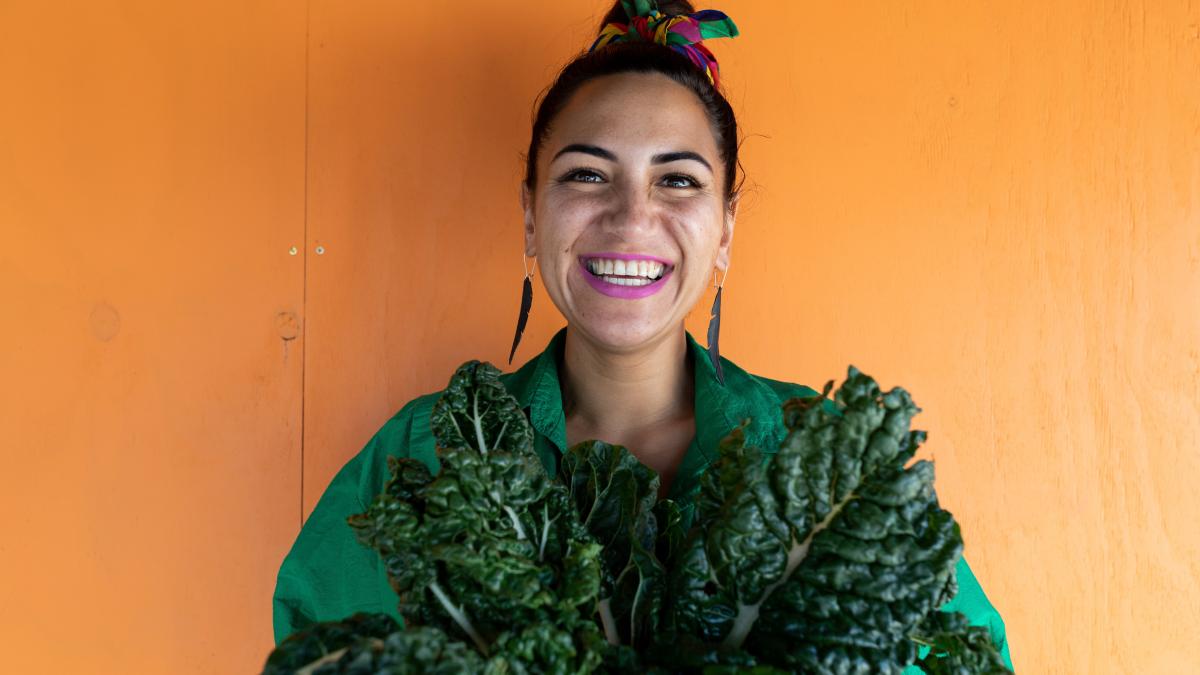






This is what vegans really do for the planet
Can a vegan diet help the climate?
Many Germans today choose a vegan or vegetarian lifestyle, mostly for sustainability or health reasons. But is a vegan diet really more environmentally friendly? And which foods are particularly harmful to the climate?
What would happen if we completely gave up animal products? A study shows what impact a global vegan diet would actually have on the climate – the effect is surprising.
IThere are more and more vegan products on supermarket shelves – and customers are happy to buy them. According to Statista, sales of vegetarian and vegan food in Germany amounted to around 1.2 billion euros in 2019. In 2017, it was still 736 million euros. And the trend is rising. Nevertheless, vegans, i.e. people who completely avoid animal products such as meat, cheese, milk and eggs, are a minority in society.
But what if that were not the case: Is it really true that climate change would be easier to control, the earth would become a better place to live, species extinction would be halted and there would be fewer people suffering from hunger? This scenario was played out in a recent study. The study was carried out in collaboration with researchers from Stanford University and the University of California in Berkeley and was published in the journal PLOS Climate in early 2022.
They come to a clear conclusion. But before we tell you how much it really benefits to live vegan, we are starting a small survey:
This is what would happen if animal husbandry were to cease within the next 15 years:
Conventional factory farming is not exactly environmentally friendly. Climate-damaging greenhouse gases such as carbon dioxide, methane and nitrous oxide are released – and in huge quantities. A team of researchers led by Michael Eisen, Professor of Genetics and Development at the University of California and biochemist Patrick Brown from the Stanford University Using computer simulations and models, researchers were able to show how much CO2 emissions alone could be saved if animal husbandry were to be completely phased out within the next 15 years and the majority of the world’s population switched to a plant-based diet.
They come to the conclusion that greenhouse gases will stabilize for at least the next 30 years and that around 68 percent of current carbon dioxide emissions could be offset by the end of this century. Admittedly, Brown is also the founder of the company “Impossible Foods,” which develops plant-based meat and milk substitutes. The research results are certainly in the interest of the biochemist and entrepreneur. But the facts cannot be ignored.
Piglets in a pig farm near Golßen (Brandenburg)
Source: Getty Images/Carsten Koall
Fewer livestock farming means fewer emissions, less electricity consumption and more free arable land
For their calculations, the researchers used data from 2019 and considered climate models for four nutritional scenarios: In Scenario number one Plant-based products would immediately replace all beef products. In Scenario number two This would happen gradually over a transition period of 15 years.
In Scenario number three is taken one step further: All animal products would be replaced by plant-based substitutes overnight (even if this cannot be implemented in reality). Scenario number four A transition period of 15 years would again be set for this step.
The simulation included, among other things, the values for emissions in the context of livestock farming and the recovery of biomass through additional arable land, and showed how these changes would affect atmospheric greenhouse gas levels and warming for the rest of the century. The scenario that performed best was one in which all animal products were avoided in a transition phase of 15 years and a large majority of people followed a vegan diet.
Buying regional products helps the climate
Source: Unsplash.com/Priscilla du Preez
Positive effects would be seen as early as 2050, a relatively short period of time, as Brown explains in a press release: “If livestock farming were phased out over 15 years and all other greenhouse gas emissions continued unabated, the phase-out would result in a 30-year pause in net greenhouse gas emissions.”
Vegan world in 15 years: will the plan really work?
The two scientists Brown and Eisen assume that existing greenhouse gases will decay and decrease if no new ones are added from agricultural livestock farming. The current CO2 emission value could also be reduced by using arable land for other purposes and also lead to a long-term improvement. Older research projects predict similar things. However, none of these simulations provide precise details about how such a 15-year plan could be implemented.
The “Fridays for Future” movement is not the only one committed to climate protection
Source: Unsplash.com/Markus Spiske
It is therefore unclear whether the switch to vegan agriculture can really be implemented one-to-one. In particular, whether it can be implemented everywhere in the world. However, the current study results suggest that a mainly plant-based diet would bring benefits in terms of climate change. Even if some animal products are still consumed, as Brown says:
Reducing or eliminating livestock farming should be at the top of the list of possible climate solutions.
The researchers of the Stanford University and University of California are not the only ones who are thinking about how we will live in the future and how we can cope with climate change.
Here is another prediction from an international research team. This is what will happen if we just carry on as before:
This article was first published in February 2022.








